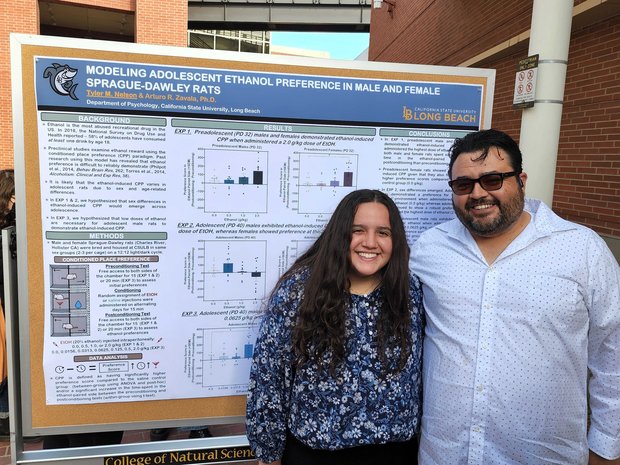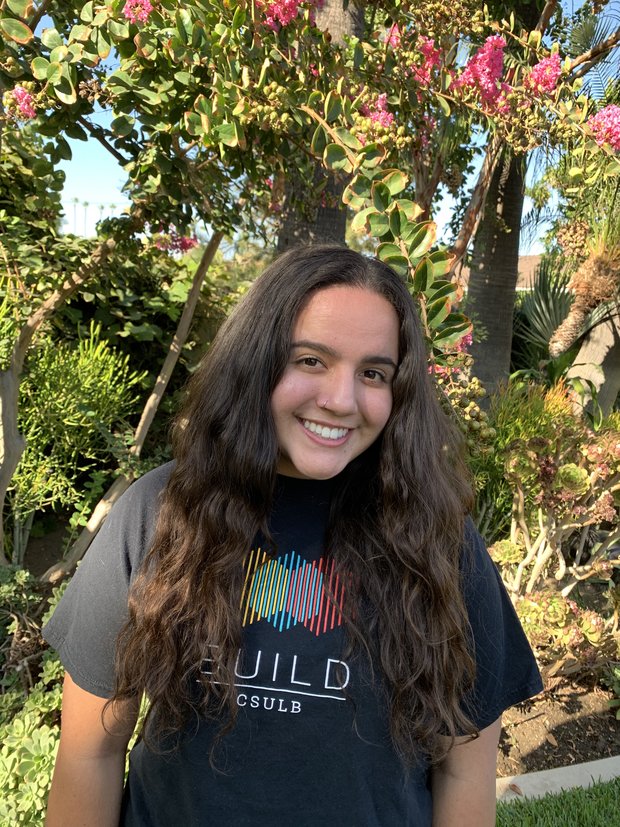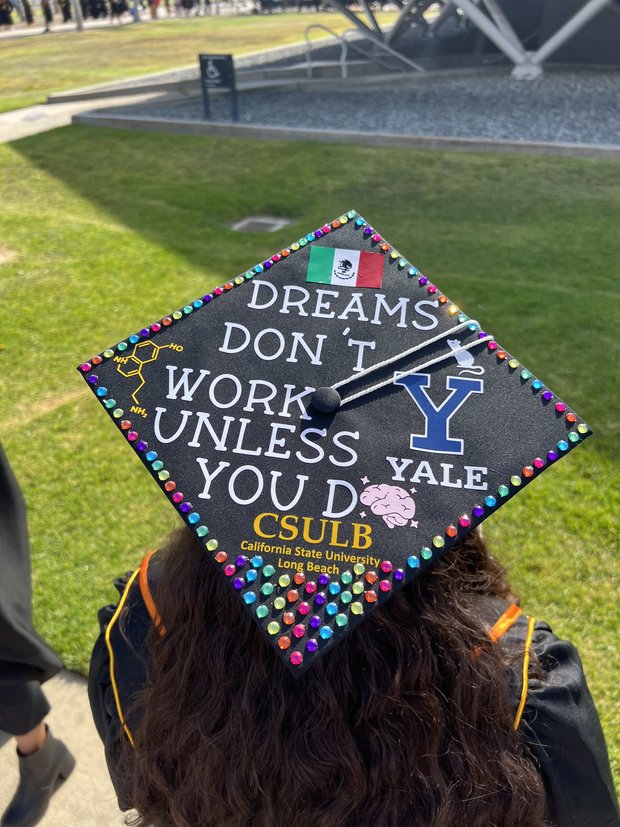BUILDing Future Researchers
By Melissa Simon
Watch Lorenzo Ramirez's interview on YouTube (click above).
Ramirez's is the fourth in our "BUILDing Future Researchers" series highlighting BUILD scholars who graduated in the Class of 2022.
Tyler Nelson didn’t always dream of becoming a scientist.
The California State University, Long Beach (CSULB) graduate said her favorite subject as a young girl was math. She recalled learning multiplication tables in third grade and loving the thrill of being first to complete the tables up to 12x12.
In high school, Nelson took an AP psychology class, which was when she discovered a passion for psychology and thought she might become a marriage and family counselor one day. At CSULB, she discovered that the field of psychology offered possibilities beyond counseling, such as a career in research.
“Once I was in college, I realized that psychology could mean so many different things and that neuroscience or behavioral neuroscience fell underneath that umbrella,” Nelson said.
What interested her about psychology was that it helps researchers understand brain behavior relationships.
“Everything that we do in our life, like even just moving our hand, has some sort of mechanism that happens in the brain at the same time, so I just thought that was so cool,” she said.

But what ultimately led to Nelson’s pursuit of psychology research was psychobiology class with Arturo Zavala, PhD, during her sophomore year at CSULB. She said she felt an immediate connection to Zavala who, like her, is Mexican.
“We shared that identity right off the bat, and just seeing how inspiring he was and how important science was to him and his research, I was like, ‘Oh, that could be me one day,’” Nelson said, adding that it was Zavala’s research on cocaine and reward that aligned with her desire to study addictions.
The CSULB alumna said her connection with Zavala continued when he became her research mentor as part of the BUILD program. Because Nelson knew she wanted to do a PhD program and ultimately become a professor or research professor, she said the mentor research experience was a key part of her undergraduate studies.
While working in Zavala’s lab, Nelson’s research focus was to investigate alcohol preference in adolescent male and female rats using the conditioned place preference (CPP) paradigm. She said the rigorous work—which included 20 hours per week during the semester and 40 hours weekly over the summer—was the perfect prep for any future work she might do.
Despite the tough requirements, Nelson said she’s grateful for Zavala and the BUILD program for showing her how to be dedicated to her research. BUILD also was great for networking with other students, professors and scientists.
“It was really cool to see how there are people that look like this that are doing such amazing things in different . . . scientific positions,” said Nelson, who was adopted at birth and is part of the LGBTQ+ community.
Nelson said she’s “very comfortable and out” in her personal life but wasn’t sure if she would be accepted in the scientific community.
Through BUILD, she met many scientists who were LGBTQ+ or advocates, and that helped her feel more comfortable in her own identity as a scientist, she said.
“I definitely feel like I wouldn't be where I am or who I am today as a scientist without everyone in the BUILD program,” Nelson said.
But the moment that really made Nelson feel like she was on the right path toward becoming a scientist was when she won two awards for her poster presentation on alcohol preference in adolescent rats while in the BUILD program.

Nelson won the National Award of Excellence for Best Poster by a Young Investigator at the National Hispanic Science Network (NHSN) in October 2020 and the Outstanding Poster Presentation Award at the Annual Biomedical Research Conference for Minoritized Scientists (ABRCMS) in November 2020.
“[Those moments] cemented for me that I was on the right path and it just motivated me to keep going,” Nelson said. “I’m excited to keep doing this work.”

Looking back on her BUILD journey, Nelson said it all started with the courage to email Zavala about working in his lab. Initially, she was hesitant to reach out because of her lack of science knowledge or research experience, but her mom’s words kept nagging at her: “You’re already sitting at a ‘no’ by not emailing him.”
“That is the biggest [piece of] advice I take to everything that I apply to and opportunities that I seek out,” she said.
“Always reach out if you're interested in science [or a specific] research topic [even] if you're still an undergrad . . . because you never know what might be interesting to you and what opportunities might come from that.”
Nelson’s determination to connect with Zavala helped her along her biomedical career journey. She is now pursuing a PhD in Neuroscience at Yale University, where she is finishing up her first semester courses and lab rotation.
Note: Tyler Nelson’s story is the final in a series called “BUILDing Future Researchers: 2022 Graduates Share Their Stories,” about recent BUILD graduates. Read all the stories from the series here in the DPC Newsletter Volume 7, Issue 3.
Recent News
The Coordination and Evaluation Center at UCLA is supported under award number U54GM119024.

Grow Together.